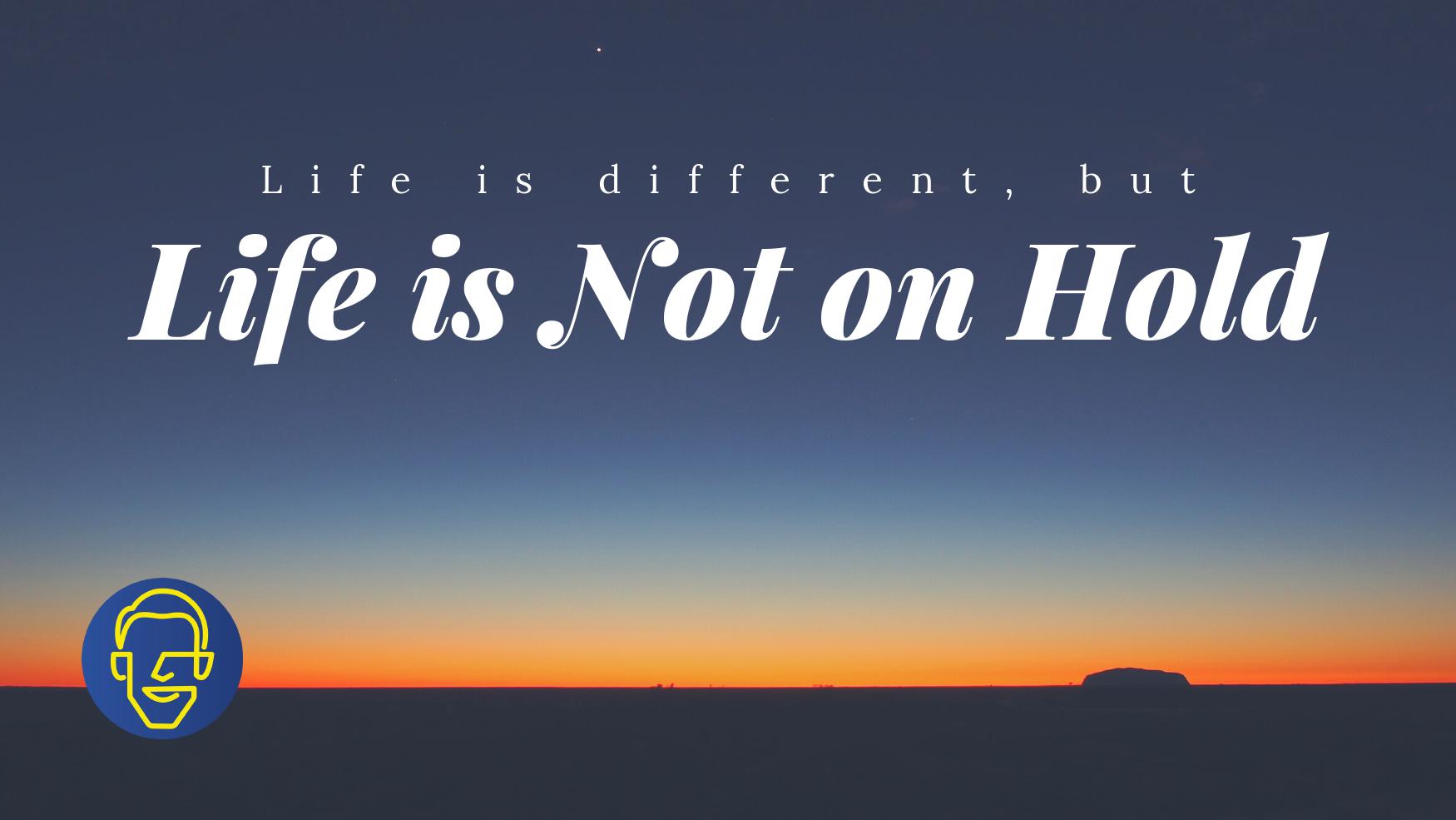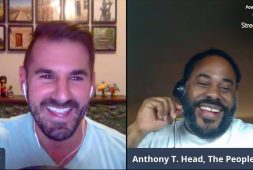
I went to the grocery store yesterday afternoon (2:30pm on a Monday) and the mood of the shoppers was 180 degrees from where it was a week prior at the same time, when the store was packed and panic had gripped everyone as news spread about the coronavirus in the United States.
A week later, the mood of the store was more like you would find on a typical Monday afternoon where everyone was calmly shopping instead of frantically filling the aisles buying everything they could as it felt like the world was coming to an end.
But as I checked out, feeling much calmer than the previous week, I still felt different. It felt like while I was still doing “normal things”, it felt like my life – even my brain – was on pause. My life has been altered and it’s hard to wrap my head around reality.
I’m not able to go to gyms. I’m not going to Wednesday sound healing meditation. I’m not playing in my volleyball league. I’m not going to my bi-weekly game night. I’m not planning a Friday night out with friends or dining in restaurants. I was thinking to myself “when this is all over, I will be able to hit the play button again and go back to normal.”
It is easy for us to feel like our lives are on hold when we are forced into an unplanned, isolated situation. It is the same type of feelings we have when we can’t wait for something in the future to occur, like a weekend or a vacation or a holiday. How many times on Wednesday or Thursday afternoon do you say “I can’t wait for the weekend to get here!” Or say something like “I can’t wait for my vacation in two weeks!”
We are certainly excited thinking about the moments that are about to happen, but what does that say about the moment you are currently having? The present moment. That Wednesday or Thursday afternoon. Are you wishing something away? Are you saying now isn’t important?
It’s almost like we just wait. Like we put our minds on a “mental hold” while we wait until the moment we have been waiting for arrives: the weekend, the vacation, the holiday. We sort of pause and just sit tight. It’s like we have given up on living or we have indirectly or even subconsciously said “I’ve had enough [of my current situation].”
And now, being thrust into uncertainty over the past several weeks, it is easy for our minds to just pause and wait for the moment when this thing is all over.
Unfortunately, this “thing” isn’t going to be over anytime soon. It is important to pay attention to our minds and the mental chatter that is happening now. We tend to avoid hearing the mental chatter because it’s just easier for us to tune it out.
Our lives are still happening. Our lives are certainly happening in an unplanned way. And our minds want comfort. Our minds try to avoid adapting and adjusting by simply blocking out the current situation. By pausing.
It is hard for us to admit that life has its ups and downs. It’s almost like we are grieving for our former lives. We so badly want what it used to be like. We don’t want to have to “shelter-in-place” or worry about toilet paper being out of stock or think that a 500 point drop in the stock market doesn’t seem that bad anymore.
But this new normal is now our way of living. We must be able to accept it because we can’t change it, even though we want to so badly. And this is why at times it is so hard to grasp.
The sooner we accept this new normal and adapt our lives to the situation, the sooner we can continue to live. And remember your life is not on hold. You are still living.
2020 NEW NORMAL ASSESSMENT
I’ve created this simple exercise designed to help you assess all areas of your new normal. You will walk through each area of your daily routine – work, family, health, etc. – and assess everything that has changed.
Writing our thoughts down on paper is a great way to create a clearer mindset, which often leads to healthier choices and decision making. We often like to try to manage everything in our heads which can lead to anxiety and feelings that quickly overwhelm us.
Once we understand how each area of our life has adjusted, we then will find ways to enhance each area. A new normal plan of sorts to help you keep living and not stay in pause mode!
After this exercise, you should feel more relaxed and ready to take on your new normal without feeling overwhelmed.
- Find a blank 8.5 x 11 sheet of paper and follow the steps below. I’ve created a special template for you to print and use for this exercise
- COLUMN 1: LIFE CATEGORIES. Think through all aspects of your daily routine and life. Write these categories down along the left hand side of the template or sheet of paper. (This will be COLUMN 1. Add 3 more columns to the right.) I’ve listed some options below to help you think through all of the areas.
- Professional Life (work)
- Family
- Friends
- Health & well-being
- Religious and/or spiritual activities
- Fun
- Intimacy
- COLUMN 2: LIFE BEFORE. Think or write down how life was before for each of these categories. Here are some examples:
- Religious: Church every Sunday.
- Health & well-being: Working out 3-4x per week.
- Health & well-being: Yoga 1x per week.
- Health & well-being: Dining out 3-4x per week.
- Fun: Going out with friends on Fridays.
- COLUMN 3: LIFE NOW. Write down how your life is NOW in each category. What is the new normal? Here are some examples:
- Work: Working from home instead of at the office.
- Intimacy: Spending more time with your partner than normal since both of you are home.
- Family: Watching your children since they don’t have school and maybe even taking on more of a role like their teacher or educator.
- COLUMN 4: LIFE ENHANCEMENTS. For each category, brainstorm the new things you can do to adapt and things that will add inspiration and positivity into your life. Here are some examples:
- Family: Having family meetings to discuss feelings and emotions during the new normal.
- Family / Fun: Hosting virtual video sessions and calls with family members you are unable to visit.
- Intimacy: Creating time and space away from your partner now that you are spending much more time together. Creating new boundaries so you don’t drive each other crazy.
- Health & well-being: Creating a new workout routine you can do at home since your gym or studio has closed indefinitely.
- Health & well-being: Consuming and preparing different meals since restaurants have closed or adjusted their hours.
- Religious: Watching church services online with your family on Sundays.
- Health & well-being / Fun / Spiritual: Taking up a project at home or a hobby that you have wanted to start.


